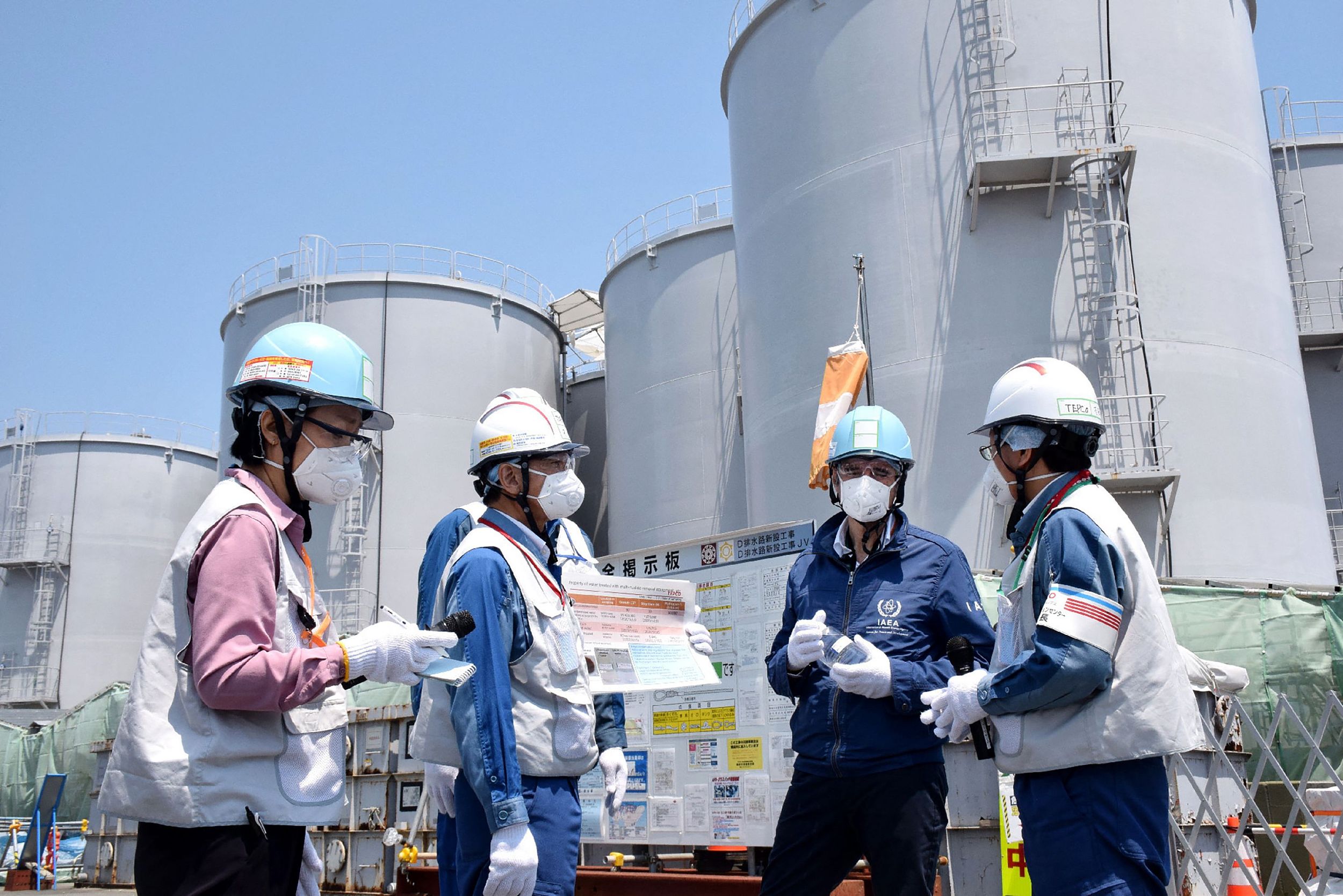Dumping Nuclear Wastewater into Pacific: Japan can't be Final Judge

The head of the International Atomic Energy Agency (IAEA) visited Japan to inspect the Fukushima Daiichi nuclear power plant in May 2022. (PHOTO: VCG)
Edited by QI Liming
All concerns related to transboundary issues should be top of the public agenda, and be decided by all the stakeholders. This has come to the fore after the release proposal of Fukushima Daiichi nuclear wastewater into the Pacific Ocean, despite the Japanese government's claims that the nuclear wastewater would be released after having been treated.
The Japanese government, saying there is no feasible alternative, has pledged to carry out the release with close attention to safety standards. However, the proposal has angered many of Japan's neighbors, particularly those with the most direct experience of unexpected exposure to dangerous levels of radiation.
Those in the South Pacific, who have suffered for decades from the fallout of a U.S. nuclear tests in the Marshall Islands, are particularly skeptical of the promises of safety. In November 2022, a group representing more than a dozen countries in the Pacific, including Australia and the Marshall Islands, urged Tokyo to defer the wastewater releases.
Motarilavoa Hilda Lini, a prominent politician and activist in Vanuatu, said, "We need to remind Japan and other nuclear states of our Nuclear Free and Independent Pacific movement slogan: If it is safe, dump it in Tokyo, test it in Paris, and store it in Washington, but keep our Pacific nuclear-free."
Nuclear testing in the Pacific "was shrouded in this veil of lies," said Bedi Racule, an antinuclear activist from the Marshall Islands, adding that "The trust is really not there."
Actually, the voices and benefits of Japanese people should be the most highly valued, because they are the direct victims.
Youngsolwara Pacific, a prominent environmental advocacy group, asked, "How can the Japanese government, which has experienced the same brutal experiences of nuclear weapons in both Hiroshima and Nagasaki, wish to further pollute our Pacific with nuclear waste? To us, this irresponsible act of transboundary harm is just the same as waging nuclear war on us as Pacific peoples and [on] our islands."
If the suggestions from Japanese people, activists, and an environmental advocacy group are not worth a second thought, then the analysis and advice from scientists and professionals should be treated more seriously.
To soothe Pacific concerns, Japanese authorities emphasize that their analysis shows that the wastewater dumping plan is safe. Almost all radioactive particles will be removed from the wastewater before it is released, except for a hydrogen isotope called tritium that Japanese experts and others say poses a relatively low health risk.
While unlike other common radioactive particles, tritium replaces the hydrogen atoms in water molecules, allowing it to pass unaffected through normal radiation filters. As a result, according to Dr. Brendan Kennedy, a chemistry professor at the University of Sydney, it is "essentially impossible" to remove.
According to Pacific News Service, global scientists leading some of the world's best marine laboratories have called for a stop to Japan's plans, and their voices should be heard and taken into consideration.
The U.S. National Association of Marine Laboratories (NAML), an organization of more than 100 member laboratories, expressed their opposition in a position paper published in December 2022. They say there is a lack of adequate and accurate scientific data supporting Japan's assertion of safety, and an abundance of data demonstrating serious concerns about releasing radioactively contaminated water.
The Pacific Ocean is the largest continuous body of water on our planet, containing the greatest biomass of organisms of ecological, economic, and cultural value, including 70 percent of the world's fisheries. However, the health of all the world's ocean ecosystems is in documented decline, due to a variety of stressors, including climate change, over-exploitation of resources, and pollution.
The proposed release of this contaminated water is a transboundary and trans-generational issue of concern for the health of marine ecosystems and those whose lives and livelihoods depend on them, states the paper.


